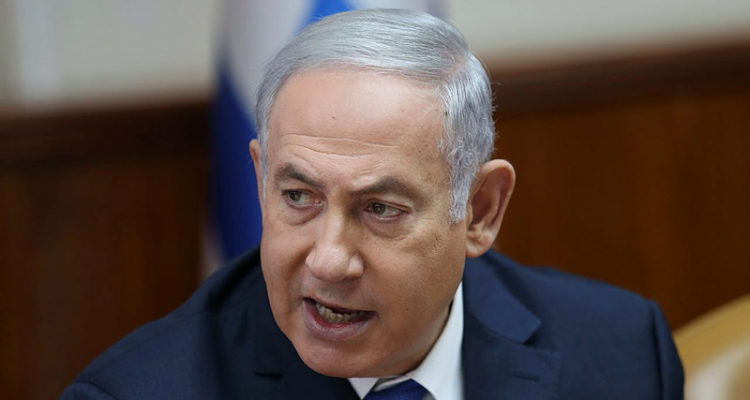Israel’s prime minister lauded the newly restored U.S. sanctions against Iran, which proponents hope will chasten the world’s top state sponsor of terror.
By Associated Press and World Israel News Staff
Israeli premier Benjamin Netanyahu praised the U.S. sanctions that snapped back into effect against Iran on Monday, calling them “historic” and saying that they will “strangle” Iranian state-sponsored terrorism.
Netanyahu said Monday at parliament that the Trump administration’s decision to restore sanctions was already having an effect. He called the move “a big day for the State of Israel.”
Israel has been a fierce opponent of the 2015 Iran nuclear deal from which the U.S. withdrew this year, saying the deal didn’t rein in Iran’s regional military activities.
The new sanctions against Iran’s shipping, financial and energy sectors come into effect Monday. The U.S. says the sanctions are not aimed at toppling the government, but at persuading it to radically change its policies, including its support for regional militant groups and its development of long-range ballistic missiles capable of carrying nuclear warheads.
On Friday night, Trump issued a statement related to the sanctions, explaining, “Our objective is to force the regime into a clear choice: either abandon its destructive behavior or continue down the path toward economic disaster.”
U.S. Secretary of State Mike Pompeo added that the sanctions are “aimed at fundamentally altering the behavior of the Islamic Republic of Iran.” Previously, Pompeo presented Iran with a list of 12 specific demands with which it must comply before the U.S. considers lifting sanctions.
The 2015 nuclear agreement that lifted the sanctions flooded Iran with billions of dollars, which credible evidence indicates was used to support terror groups such as Hamas and Hezbollah, back Assad’s murderous regime in Syria, and fight Saudi Arabia in a bloody proxy war in Yemen.
Critics of the deal also maintained that it did not adequately address Iran’s nuclear ambitions or its covert program to develop nuclear weapons.





